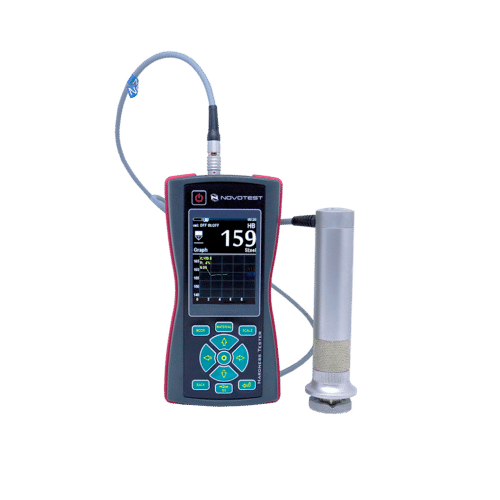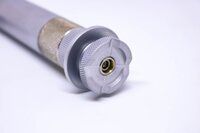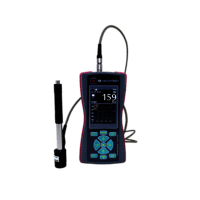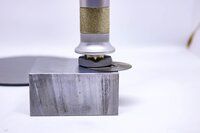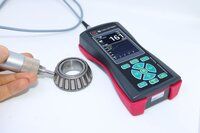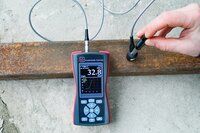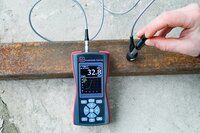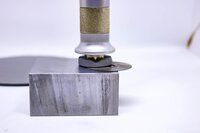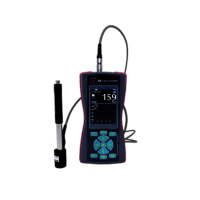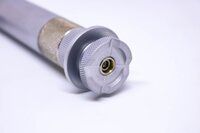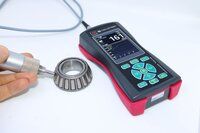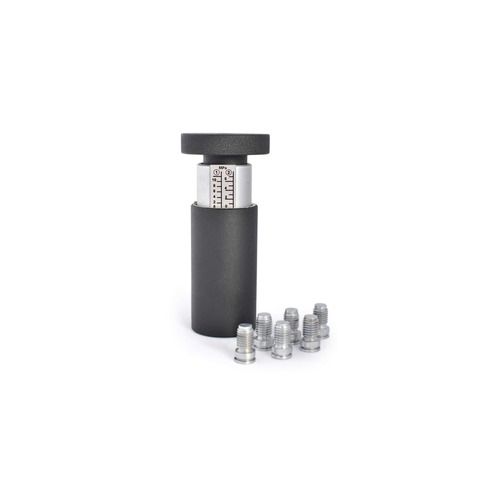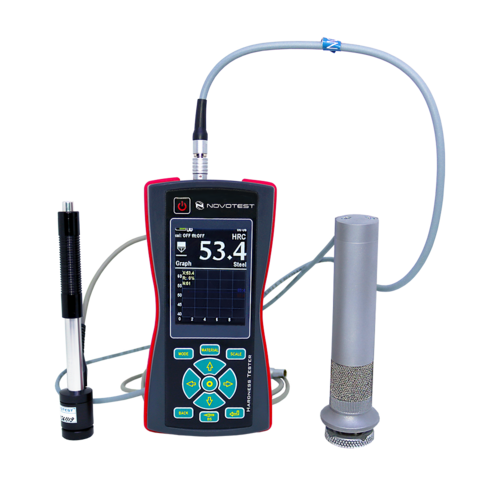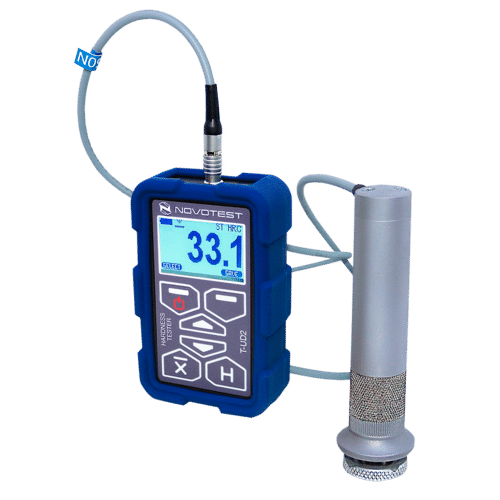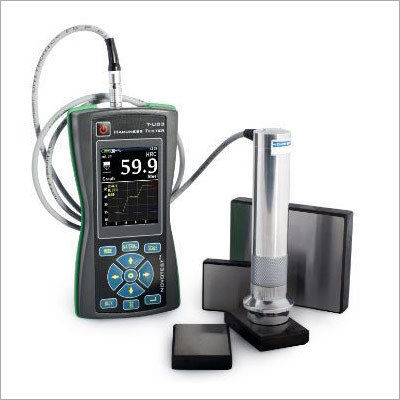Leeb Hardness Tester T-D3
219730.00 INR/Piece
Product Details:
- Application industrial
- Power Supply DC 4,5V (3 pcs batteries AA)
- Color Gray Black
- Dimension (L*W*H) 30 x 21 x 9 Centimeter (cm)
- Weight 300 Grams (g)
- Machine Weight 0.3kg Kilograms (kg)
- Click to View more
X
Leeb Hardness Tester T-D3 Price And Quantity
- 1 Piece
- 219730.00 INR/Piece
Leeb Hardness Tester T-D3 Product Specifications
- DC 4,5V (3 pcs batteries AA)
- Gray Black
- industrial
- 300 Grams (g)
- 0.3kg Kilograms (kg)
- 30 x 21 x 9 Centimeter (cm)
Product Description
The most popular method in the world for testing the hardness of metals using a portable hardness tester is the Leeb method (ASTM A956). The so-called dynamic method for determining hardness is widespread due to its ease of use. The user does not need to have special skills and or knowledge in the field of hardness measurement, to carry out the measurement, it is necessary to charge up the impact body of the deviceïs probe, install the probe on the tested surface, press the release button of the probe and the hardness value will be displayed on the device screen.Lightweight and Portable Design
Weighing only 300 grams and featuring dimensions of 30 x 21 x 9 cm, the Leeb Hardness Tester T-D3 is engineered for effortless portability. This design makes on-site testing quick and convenient, especially useful for professionals who operate across various industrial settings.
Efficient Battery Operation
Powered by three AA batteries (DC 4.5V), the T-D3 offers independence from wired power sources. This battery functionality allows users to perform hardness testing in remote or challenging environments, maintaining productivity without interruptions.
Versatile Industrial Applications
This hardness tester is suitable for exporters, manufacturers, service providers, suppliers, and traders throughout India. Its adaptability across multiple sectors provides a comprehensive solution for material hardness measurement and quality checks.
FAQs of Leeb Hardness Tester T-D3:
Q: How is the Leeb Hardness Tester T-D3 powered and how long do the batteries typically last?
A: The T-D3 operates using three standard AA batteries (DC 4.5V). Battery life depends on usage frequency, but it allows for multiple testing sessions before needing replacement, making the device suitable for long periods of fieldwork.Q: What materials can the Leeb Hardness Tester T-D3 measure, and in what industrial applications is it most useful?
A: The T-D3 is effective for testing metals and various industrial materials. It is particularly valuable for exporters, manufacturers, service providers, suppliers, and traders who require quick, on-site hardness verification in their production or quality assurance processes.Q: When should I use the Leeb Hardness Tester T-D3 during the manufacturing process?
A: The tester is best used at points where material quality needs to be verified, such as after production, during inspections, or before shipment. This ensures that products meet desired hardness specifications and quality standards.Q: Where can the Leeb Hardness Tester T-D3 be employed effectively?
A: Due to its lightweight and battery-powered design, it can be utilized in factories, warehouses, workshops, and at shipping or receiving docksessentially any location where quick material hardness assessment is required.Q: What is the process for operating the Leeb Hardness Tester T-D3?
A: To use the T-D3, insert three AA batteries, position the probe on the materials surface, and activate the testing sequence as per the user manual. The device will display the hardness measurement instantly, allowing for immediate quality assessment.Q: How does using the T-D3 benefit my business operations?
A: This hardness tester streamlines quality control by providing rapid, portable, and non-destructive hardness measurements. Using it helps businesses maintain consistency, meet export standards, and improve overall product reliability, all while saving time.Tell us about your requirement

Price:
Quantity
Select Unit
- 50
- 100
- 200
- 250
- 500
- 1000+
Additional detail
Mobile number
Email
 English
English Spanish
Spanish French
French German
German Italian
Italian Chinese (Simplified)
Chinese (Simplified) Japanese
Japanese Korean
Korean Arabic
Arabic Portuguese
Portuguese
